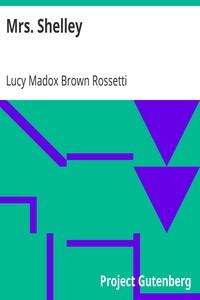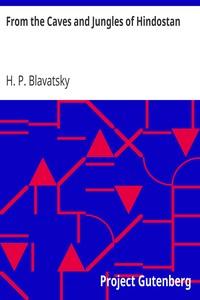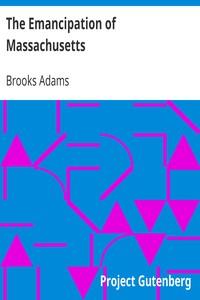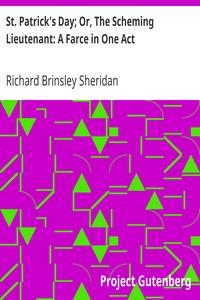Read this ebook for free! No credit card needed, absolutely nothing to pay.
Words: 69684 in 10 pages
This is an ebook sharing website. You can read the uploaded ebooks for free here. No credit cards needed, nothing to pay. If you want to own a digital copy of the ebook, or want to read offline with your favorite ebook-reader, then you can choose to buy and download the ebook.


: Mrs. Shelley by Rossetti Lucy Madox Brown - Authors English 19th century Biography; Shelley Mary Wollstonecraft 1797-1851; Women and literature England History 19th century
PARENTAGE.
The daughter of Mary Wollstonecraft and Godwin, the wife of Shelley: here, surely, is eminence by position, for those who care for the progress of humanity and the intellectual development of the race. Whether this combination conferred eminence on the daughter and wife as an individual is what we have to enquire. Born as she was at a time of great social and political disturbance, the child, by inheritance, of the great French Revolution, and suffering, as soon as born, a loss certainly in her case the greatest of all, that of her noble-minded mother, we can imagine the kind of education this young being passed through--with the abstracted and anxious philosopher-father, with the respectable but shallow-minded step-mother provided by Godwin to guard the young children he so suddenly found himself called upon to care for, Mary and two half-sisters about her own age. How the volumes of philosophic writings, too subtle for her childish experience, would be pored over; how the writings of the mother whose loving care she never knew, whose sad experiences and advice she never heard, would be read and re-read. We can imagine how these writings, and the discourses she doubtless frequently heard, as a child, between her father and his friends, must have impressed Mary more forcibly than the respectable precepts laid down in a weak way for her guidance; how all this prepared her to admire what was noble and advanced in idea, without giving her the ballast needful for acting in the fittest way when a time of temptation came, when Shelley appeared. He appeared as the devoted admirer of her father and his philosophy, and as such was admitted into the family intimacy of three inexperienced girls.
Picture these four young imaginative beings together; Shelley, half-crazed between youthful imagination and vague ideas of regenerating mankind, and ready at any incentive to feel himself freed from his part in the marriage ceremony. What prudent parents would have countenanced such a visitor? And need there be much surprise at the subsequent occurrences, and much discussion as to the right or wrong in the case? How the actors in this drama played their subsequent part on the stage of life; whether they did work which fitted them to be considered worthy human beings remains to be examined.
As no story or life begins with itself, so, more especially with this of our heroine, we must recall the past, and at least know something of her parents.
Mary Wollstonecraft, one of the most remarkable and misunderstood women of even her remarkable day, was born in April 1759, in or near London, of parents of whose ancestors little is known. Her father, son of a Spitalfields manufacturer, possessed an adequate fortune for his position; her mother was of Irish family. They had six children, of whom Mary was the second. Family misery, in her case as in many, seems to have been the fountainhead of her genius. Her father, a hot-tempered, dissipated man, unable to settle anywhere or to anything, naturally proved a domestic tyrant. Her mother seems little to have understood her daughter's disposition, and to have been extremely harsh, harassed no doubt by the behaviour of her husband, who frequently used personal violence on her as well as on his children; this, doubtless, under the influence of drink.
Such being the childhood of Mary Wollstonecraft, it can be understood how she early learnt to feel fierce indignation at the injustice to, and the wrongs of women, for whom there was little protection against such domestic tyranny. Picture her sheltering her little sisters and brother from the brutal wrath of a man whom no law restricted, and can her repugnance to the laws made by men on these subjects be wondered at? Only too rarely do the victims of such treatment rise to be eloquent of their wrongs.
The frequent removals of her family left little chance of forming friendships for the sad little Mary; but she can scarcely have been exactly lonely with her small sisters and brothers, possibly a little more positive loneliness or quiet would have been desirable. As she grew older her father's passions increased, and often did she boldly interpose to shield her mother from his drunken wrath, or waited outside her room for the morning to break. So her childhood passed into girlhood, her senses numbed by misery, till she had the good fortune to make the acquaintance of a Mr. and Mrs. Clare, a clergyman and his wife, who were kind to the friendless girl and soon found her to have undeveloped good qualities. She spent much time with them, and it was they who introduced her to Fanny Blood, whose friendship henceforth proved one of the chief influences of her life; this it was that first roused her intellectual faculty, and, with the gratitude of a fine nature, she never after forgot where she first tasted the delight of the fountain which transmutes even misery into the source of work and poetry.
She wished women to have education equal to that of men, and this has now to a great extent been accorded.
That trades, professions, and other pursuits should be open to women. This wish is now in progress of fulfilment.
That married women should own their own property as in other European countries. Recent laws have granted this right.
That they should have more facilities for divorce from husbands guilty of immoral conduct. This has been partially granted, though much still remains to be effected.
That, in the case of separation, the custody of children should belong equally to both parents.
Free books android app tbrJar TBR JAR Read Free books online gutenberg
More posts by @FreeBooks

: From the Caves and Jungles of Hindostan by Blavatsky H P Helena Petrovna - India Description and travel; India Religion; Blavatsky H. P. (Helena Petrovna) 1831-1891 India; Racism


: The Gardener by Tagore Rabindranath - Indic poetry Translations into English; Tagore Rabindranath 1861-1941 Translations into English; Bengali poetry Translations into English





